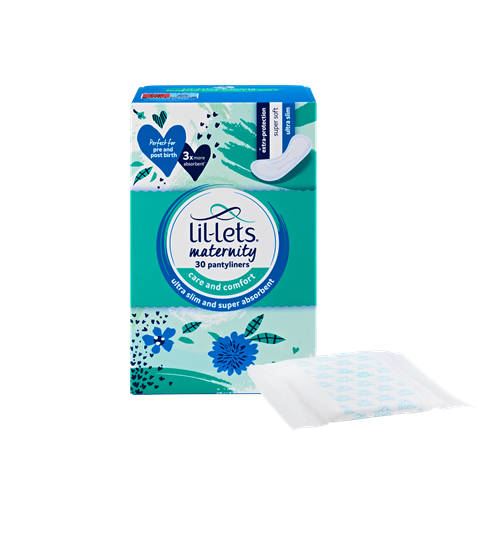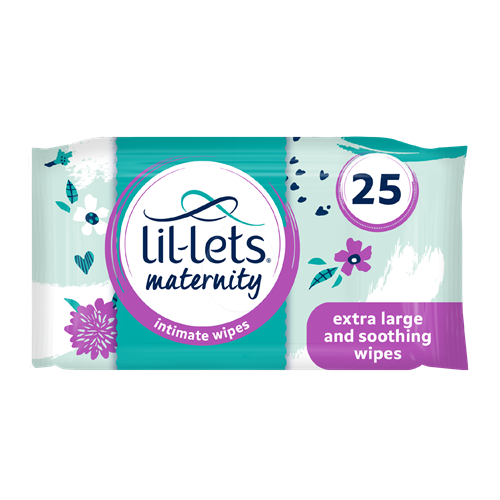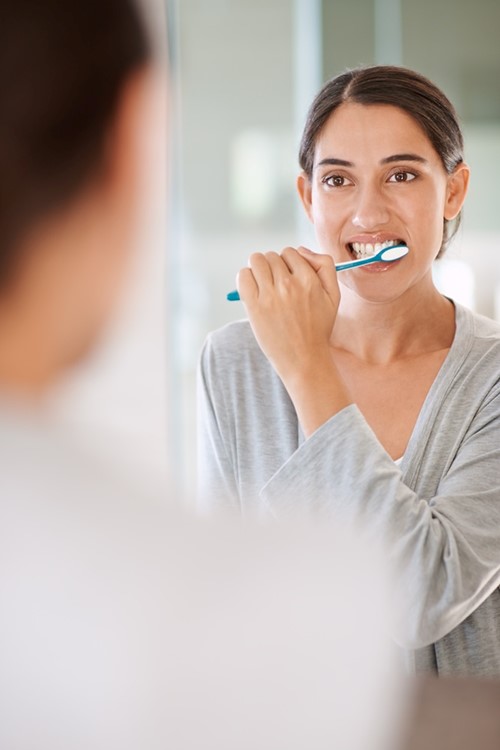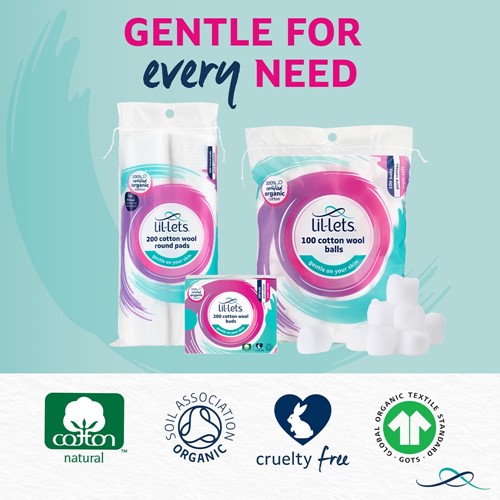Pregnancy brings hormonal changes that can make the vaginal area more sensitive, increase discharge, and raise the risk of infections. Here are some considerations to keep in mind.
When you're feeling uncomfortable, and your pregnancy body is changing daily, keeping on top of your general and intimate hygiene routine can become difficult, and often feels like a bit of a chore. But maintaining overall health, can help contribute to a more comfortable pregnancy. Here are some key reasons why hygiene is crucial during pregnancy.
During pregnancy, you might notice an increase in vaginal discharge, don't worry, this is absolutely normal and helps prevent infections from traveling up from the vagina to the uterus. Hormonal changes, such as increased levels of oestrogen and progesterone, contribute to this increase in vaginal discharge.

You’ll likely be experiencing increased discharge during pregnancy, using unscented pantyliners can help you feel more comfortable. Be sure to change them regularly.
Lil-Lets Maternity PantylinersLil-Lets Maternity Intimate Wipes are designed with mums in mind, for both pre and post birth use and ideal for use between maternity pad or pantyliner changes.

Maintaining good hygiene during pregnancy is crucial for your health and well-being, as well as that of your developing baby. Here are some general hygiene tips to keep in mind during this special time.

Pregnancy can have a significant impact on your oral health due to hormonal changes, increased blood flow, and altered immune response. These changes can result in tooth decay and Gingivitis.
And if you suffer with morning sickness, be sure to rinse your mouth with water and mouthwash to neutralise any stomach acid left in the mouth.
Pregnancy can really play havoc with your skin, and you may find you need to rethink your usual skincare routine as hormone levels fluctuate. Here are some common skin changes that occur during pregnancy and tips on how to manage them:
Melasma (Mask of Pregnancy) Brown or greyish patches on the face, particularly on the cheeks, nose, forehead, and upper lip are caused by increased production of melanin due to hormonal changes.
How To Treat:
Increased oil production can lead to acne breakouts, similar to those experienced during puberty, again we have hormones to blame for these outbreaks and in increase in sebum production.
How To Treat:
For 9 months your skin may become more sensitive to sunlight, heat and other irritants, in other words your skin may become more reactive to your usual skin products and household items.
How To Treat:

If you’re one of the lucky ones who finds their hair and skin has never looked better during pregnancy, you should still practice a daily skincare routine that should include the following:
There’s no reason why you can’t shower or bathe daily when pregnant to maintain cleanliness and comfort, and for some a warm bath can ease any aches or cramps, you may be experiencing.
Comfortable clothing during pregnancy can make a significant difference in how you feel as your body changes. Here are some tips to help you choose and wear clothing that will keep you comfortable throughout your pregnancy:
Regular handwashing is one of the best ways to keep yourself healthy and prevent the spread of illness in your family. It physically removes germs through friction, so make sure to wash your hands properly and frequently, especially during pregnancy.
Maintaining good general and intimate hygiene during pregnancy is essential for your comfort and health. By following these tips and being attentive to any changes, you can help ensure a healthy pregnancy.
If you notice any unusual symptoms, such as itching, burning, unusual odour, or abnormal discharge colour, contact your doctor or midwife, these could be signs of an infection that may need medical attention.
Vaginal discharge is completely normal during pregnancy and often increases due to hormonal changes, especially rising oestrogen and increased blood flow to the vaginal area. It also plays a crucial role in keeping the vagina clean and preventing infections.
Vaginal Discharge In PregnancyThe last thing you want during your pregnancy and labour is to feel confused about what’s being said around you. To help, we’ve put together a simple guide to some of the most common pregnancy and birth terms, so you can feel more confident and prepared.
The A-Z of PregnancyYour growing baby bump and ever-increasing breast size are just some of the more obvious physical changes you’ll notice during pregnancy.
Unexpected Body Changes During Pregnancy
Yes, signs include unusual discharge (green, yellow, or thick like cottage cheese), strong odour, itching, burning, or pain during urination. If you experience any of these, seek medical advice.
Yes, swimming is generally safe and a great form of exercise during pregnancy. However, make sure to shower immediately after swimming and change out of wet swimsuits promptly to avoid infections.
It’s recommended to wash your intimate area once daily with warm water. Over-washing can disrupt the natural balance of bacteria and yeast.
Mild, unscented soaps or intimate washes specifically designed for sensitive skin are best. Avoid douching and harsh chemicals.
Itching can be due to dryness, irritation, or infections. Use gentle, unscented products and wear loose-fitting clothes. If itching persists, consult your doctor or midwife
Yes, increased vaginal discharge is common due to hormonal changes. It should be clear or white and odourless. If it changes colour, consistency, or has a strong odour, consult your healthcare provider.